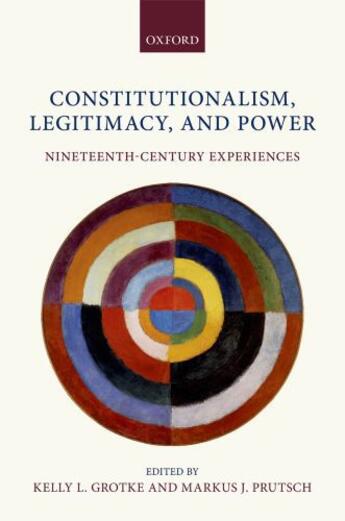-
Nombre de pages : (-)
-
Collection :
(-)
-
Genre :
(-)
-
Thème :
Non attribué
-
Prix littéraire(s) :
(-)
Résumé:
If one counts the production of constitutional documents alone, the nineteenth century can lay claim to being a 'constitutional age'; one in which the generation and reception of constitutional texts served as a centre of gravity around which law and politics consistently revolved. This volume... Voir plus
If one counts the production of constitutional documents alone, the nineteenth century can lay claim to being a 'constitutional age'; one in which the generation and reception of constitutional texts served as a centre of gravity around which law and politics consistently revolved. This volume critically re-examines the role of constitutionalism in that period, in order to counter established teleological narratives that imply a consistent development from absolutism towards inclusive, participatory democracy. Various aspects of constitutional histories within and outside of Europe are examined from a comparative, transnational, and multidisciplinary historical perspective, organized around five key themes. The first part looks at constitutions as anti-revolutionary devices, and addresses state building, monarchical constitutionalism, and restorations. The second part takes up constitutions and the justification of new social inequalities, focusing on women's suffrage, human rights, and property. The third part uses individual country studies to take on questions of how constitutions served to promote nationalism. The use of constitutions as instruments of imperialism is covered in the fourth part, and the final part examines the ways that constitutions function simultaneously as legal and political texts.
These themes reflect a certain scepticism regarding any easy relationship between stated constitutional ideals and enacted constitutional practices. Taken together, they also function as a general working hypothesis about the role of constitutions in the establishment and maintenance of a domestically and internationally imbalanced status quo, of which we are the present-day inheritors. More particularly, this volume addresses the question of the extent to which nineteenth-century constitutionalism may have set the stage for new forms of domination and discrimination, rather than inaugurating a period of 'progress' and increasing equality.
Donner votre avis















